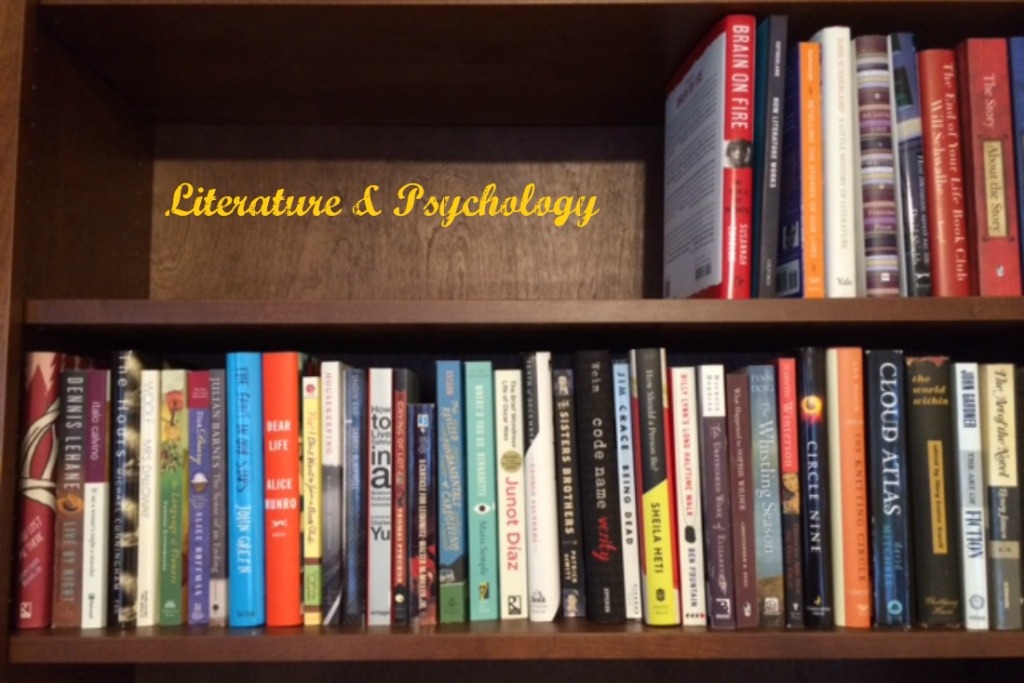Because I’m particularly interested in the intersection between literature and psychology, I curate Literature & Psychology, which I update regularly. Through this curation I’ve discovered a number of interesting blogs and web sites.
Siobhan Curious describes herself as “a teacher, student and person.” She teaches college English and writes fiction (both novels and short stories). “She holds one undergraduate degree in English, one in second-language education, and a masters degree in English and creative writing. She is currently working on a masters in education.”
On this blog Siobhan Curious discusses not only teaching, but her own experiences as a reader and writer. There are lots of book reviews here, and she also links to her fiction.
I see that she hasn’t updated this blog since August, but I feel certain she’ll get back to work on it when she can. Between teaching, working on that second master’s degree, and writing fiction, I’m sure she has her hands full just now. Her archives go back to August 2007, so there’s plenty of material here to look at while waiting for her to reappear.
The Fiction Reboot and the Daily Dose
Dr. Brandy Schillace is chief editor of this two-pronged web site. I’ll let her describe it for you:
The Fiction Reboot | Daily Dose is a combined blog that promotes the medical humanities and intersections between self and story. Our mission: promote authors (fiction and non-fiction) and share perspectives about narrative, medicine, history, anthropology and sociology across cultures and disciplines. We seek to engage those working at the intersection, intrepid souls adding to our shared knowledge of what it means to be human.
Dr. Schillace is managing editor of Culture, Medicine, and Psychiatry and a research associate for the Dittrick Museum of Medical History at Case Western Reserve University in Cleveland, OH. She writes both fiction and nonfiction.
Storycraft: Craft-based analysis for fiction writers
This is the blog attached to the main web site of novelist, essayist, and lecturer Tim Weed. He is a frequent presenter at writing workshops, and his blog reads like an ongoing workshop for authors. In clear and unpretentious language he explains topics such as how plot works and how good writers develop fictional character. He’s teaching authors how to write, but as a reader I also learn a lot about how to appreciate the writer’s process as I’m reading a novel.
Francis and Linda McGovern founded Literary Traveler in 1998 with the following purpose in mind:
Literary Traveler is dedicated to the exploration of the literary imagination. We hope to bring you inspiring, informative articles about writers, creative artists, and the places that they lived and traveled.
Their web site features book reviews and general articles about literature, such as “From Page to Picture: The Dilemmas of Adaptation.” They also arrange literary tours. Some of the material here focuses on the relationship between writers and the places where they lived and/or worked.
Psychology And Cognitive Aspects Of Reading
This is a Flipboard collection of articles about “Psychology, cognitive psychology, neuroergonomics and many other research fields which affect a way we read.”
This site is aimed at book groups. Members can join for free and can create a private web page for their group. Other features include listings of top book club choices and book giveaways for book clubs.
Two aspiring writers blog about their relationship to all things literary. They post regularly. This is a good site to check if you’re interested in what ordinary people, as opposed to professional literary critics, think about particular books.
Welcome to Interesting Literature, an online library of all that is most interesting and captivating about literature. Here you’ll find fun facts, interesting research into writers and their work, and blog posts which seek to capture the most fascinating facets of the literary world.
The site is run by Dr. Oliver Tearle, Lecturer in English at Loughborough University in England.
open culture: The best free cultural & educational media on the web
Open Culture brings together high-quality cultural & educational media for the worldwide lifelong learning community.
Open Culture curates free “intelligent audio and video.” And boy, is there a lot of material here, including the following:
- 950 free online courses from top universities
- 675 free online movies
- 550 free audiobooks
- 600 free ebooks
Dan Colman, the lead editor, is the Director & Associate Dean of Stanford’s Continuing Studies Program, though the site is not associated with Stanford.

